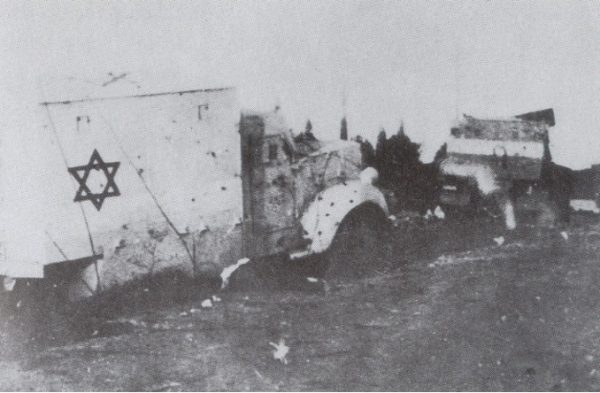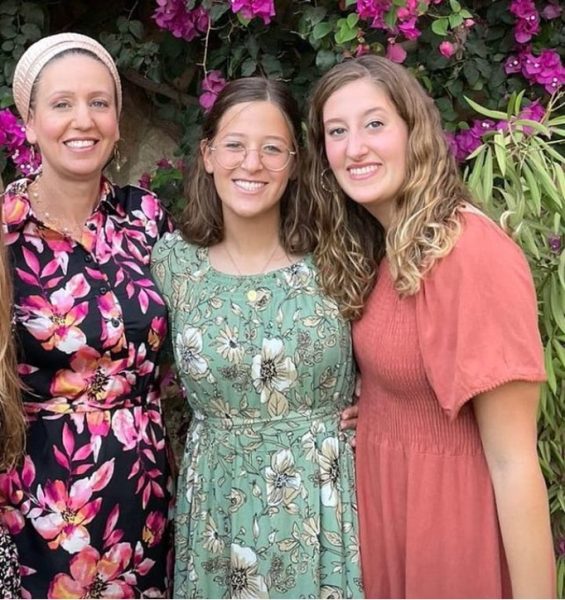By Doron Krakow
It Was for This That You Were Chosen (Rashi)
We are, it seems, routinely reminded of life’s bigger picture. News cycles focus on the here and now—politics, war, terror, natural and man-made disasters, as well as the lighter fare—concerts, winning streaks, and other sensations. Meanwhile, the Jewish calendar calls upon us to take a break from the here and now and consider our reality through a wider lens.
Pesach, and the story of the Exodus, provides the single most frequently celebrated moment on the Jewish calendar, a time when more than 80% of all Jews the world over gather with family or friends to share in the tradition of the Seder. In communities of every size and description—in Israel and to the four corners of the globe, we retell the story of our people, not in the past tense, but in the present—our own chronicle of the journey from slavery to freedom, as if we ourselves had been redeemed. It is a powerful reminder that the moment in which we live, irrespective of how dramatic it may seem, is simply a single beat in our people’s still unfinished 4,000-year-long musical score.
With Pesach behind us, the Exodus chronicle continues to unfold in this week’s Torah portion, Shemini | שְׁמִינִי, which begins following the completion of the Mishkan | מִשְׁכַּן —the holy Tabernacle. For seven days Moses has prepared Aaron and his sons for their service as priests. He speaks to Aaron, saying:
Come near to the altar and offer your sin offering and your burnt offering and make atonement for yourself and the people.” (Lev. 9:7)
The first few words, “Come near to the altar,” have captivated scholars and sages across the generations. Rashi concluded that Moses needed to beckon his brother closer as Aaron deemed himself unworthy, owing to his shame about the role he played in the episode of the golden calf. Moses then said to him: “Why are you ashamed? It was for this that you were chosen.”
Aaron overcomes his hesitancy, as had Moses at the Burning Bush, having also initially hesitated over arguments about his own feelings of unworthiness. Humility and apprehension are often impediments to leadership, a topic about which I have been thinking a great deal with regard to the North American Jewish community—and the critical work being done by way of the JCC Movement.
At a time of diminishing levels of participation in many sectors of Jewish life, Jewish Community Centers and Camps are experiencing the highest levels of participation in their long history, with over a million in-person Jewish encounters occurring each week. A million Jews of every background and description purposefully choose this unique Jewish setting to participate in any of a host of programs, activities, or initiatives offered by institutions whose diversity of content and points of entry are as remarkable as that of its users and members.
Notwithstanding such incomparable interpersonal engagement, it is still altogether too rare for JCC leaders, both lay and professional, to embrace Jewish leadership responsibility on a communal level. All too often, when thinking about Jewish leaders, it is others in the community who come to mind, perhaps owing to a history in which the leadership of congregations, Federations, and major advocacy organizations have been the people with which members of our community have most identified. There are, in many such settings, leaders of remarkable skill and ability. And yet, the continuing decline in participation renders a growing number of these organizations and institutions less effective and their leaders less representative of the communities around them.
JCCs have often long played a complementary role, content in the knowledge that allied sectors of the community attended to our people’s needs and concerns while fostering a sense of peoplehood and commitment to Jewish life. But the world is rarely static; so it is with our movement. Jews here in North America, at a time of unrivaled opportunity and possibility, are free to be and become whatever we wish—and are far less dependent upon our communities than in years gone by. Today, our commitment to Jewish life and Jewish institutions is less a product of reliance on one another in the face of challenges from without and more a function of choice and desire—questions from within. The institutions and organizations to which we are drawn are, more and more, those that offer us the possibility to be what we wish to be and not necessarily what we’ve always been.
It, therefore, comes as no surprise that JCCs have become preeminent. When the fastest growing demographic in our community is Jews of no religion—or “just Jews,” increasing numbers are drawn to the place at which the full breadth of ways in which we identify are equally valued and embraced. But JCCs can ill afford to remain passive in the face of such changes. If this is indeed the new paradigm for participation in Jewish life, then JCC leaders must embrace the responsibility to do and be more. To serve not only as hosts and providers, but also as conveners, guides, and authors of the chapter of Jewish history to come.
Leadership needn’t be a lonely pursuit. Rabbis and philanthropists, thinkers and executives, partners and allies in every community should be sought and engaged—for the work that lies ahead is daunting. But make no mistake, if leadership is not embraced by those with the biggest footprint, this major opportunity will pass us by. More and more, we should be looking to those at the helm of our JCCs— the largest point of contact for North American Jews, to overcome their hesitation and take their rightful place in Jewish leadership. After all, it was for this that you were chosen.
May you, and may we all, go from strength to strength.
Shabbat shalom | שַׁבָּת שָׁלוֹם

Doron Krakow
President and CEO
JCC Association of North America

On April 13, 1948, a convoy of civilians, mostly doctors and nurses, was ambushed by Arabs as it passed through the Jerusalem suburb of Sheikh Jarrah on its way to the Hadassah Hospital on Mt. Scopus. The killings unfolded over a matter of hours in full view of British soldiers who did not intervene. Seventy-eight Jews, including 23 women and the head of Hadassah Hospital—Dr. Chaim Yassky, were killed by gunfire or were burned to death when their vehicles were set on fire. The 31 victims who could be identified were buried individually. The rest were interred in a mass grave in the Sanhedria Cemetery.

Almost 75 years to the day later, Lucy, Rina, and Maia Dee, en route to a Pesach celebration, were ambushed and massacred in much the same way, for much the same reason.

‘That’s the way it was’—the way it remains…
Am Yisrael Chai | עַם יִשְרָאֵל חַי
Reader Interactions